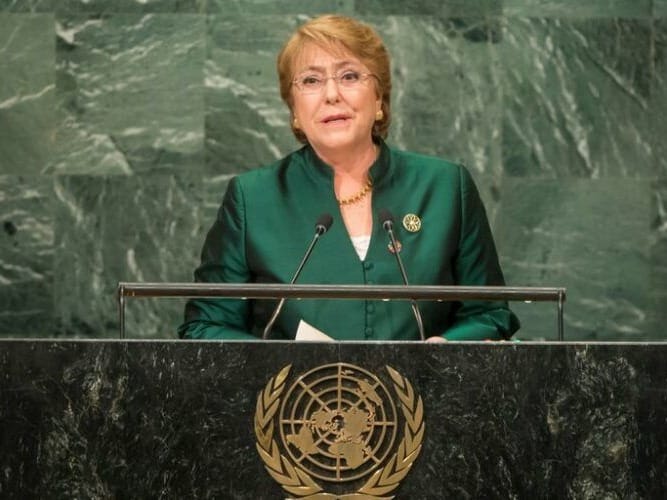UNITED NATIONS (AN) — Michelle Bachelet, who transformed herself from political prisoner to physician and president of Chile, was appointed head of the Office of the United Nations High Commissioner for Human Rights.
She will be responsible for promoting a main pillar of the U.N. system in a role that will draw on her past as a victim of torture and detention in her home country.
Bachelet, who became Chile's first female president and served two terms in that office from 2006 to 2010 and from 2014 to 2018, won approval from the U.N. General Assembly to run the U.N. human rights office known as OHCHR at the start of September.









